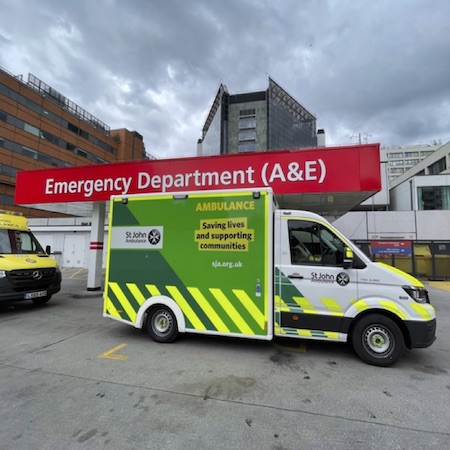NHS Chief Executive, Amanda Pritchard, has commended NHS staff for their hard work and dedication in delivering the first milestone in the Elective Recovery Plan.
NHS England announced yesterday that the longest waits for scans, checks, surgical procedures and other routine treatment have been virtually eliminated.
The NHS Elective Recovery Plan, published earlier this year, set out how the health service would address the backlogs that have inevitably built up during Covid.
The first step in the plan was focused on those patients waiting two years or more by the end of July, except where they chose to wait longer, did not want to travel to be seen faster, or for very complex cases requiring specialist treatment.
There were more than 22,500 people who had been waiting two years or more at the start of the year, and a further 51,000 who would have breached two years by the end of July have also been treated.
This recovery has been delivered despite higher levels of Covid, with hospitals treating more than 220,000 patients with the virus since the plan was published in February.
Thanks to the hard work and innovation of doctors, nurses, therapists, physios and other NHS staff that has been reduced to just 2,777, despite Covid and other pressures. Of those who are still waiting, 1,579 opted to defer treatment and 1,030 are very complex cases, as set out in the plan.
NHS staff are working hard to ensure the remaining patients who have not yet been treated are seen as quickly as possible.
Amanda Pritchard said this milestone had only been achieved because of reforms to the way NHS delivers care, including using innovative techniques and adopting pioneering technology like robot surgery, as well as building new relationships and mutual aid arrangements across systems to offer patients the opportunity to be transferred elsewhere and get the care they need as quickly as possible.
The next phase will focus on patients waiting longer than 18 months.
Sir James Mackey, NHS England National Director of Elective Recovery, says: “From dedicated surgery hubs to increase the number of procedures carried out each day, to day case surgeries allowing people to recover in the comfort of their homes, and ensuring treatment transfers can happen for those patients prepared to travel, NHS staff are doing everything possible to bring down long waits for patients even further.”
Health and Social Care Secretary Steve Barclay said: “Beating the Covid backlogs is one of my top priorities and the NHS has successfully delivered on the first major target in our Elective Recovery Plan. This is testament to NHS staff who have worked incredibly hard to get us here – despite the significant challenges.
“We are working hard with the NHS to get our health system back to peak performance, by growing the healthcare workforce, opening new community diagnostic centres and surgical hubs across the country, and investing in innovative technology to ensure patients can access the treatment they need while saving staff time”.
NHS Providers and NHS Confederation have both recognised the achievement of reaching this important milestone, but caution that NHS staff are aware that there is still a long way to go. The overall waiting list for elective care continues to grow and ambulance services remain under pressure.
In an interview published by The Telegraph over the weekend, Steve Barclay admitted that hospitals are facing some “very serious challenges” as autumn approaches, adding that the health service could not wait for a new Prime Minister to be in post, but that critical decisions, including on hiring more staff from overseas, needed to be taken now. Read the full interview.











